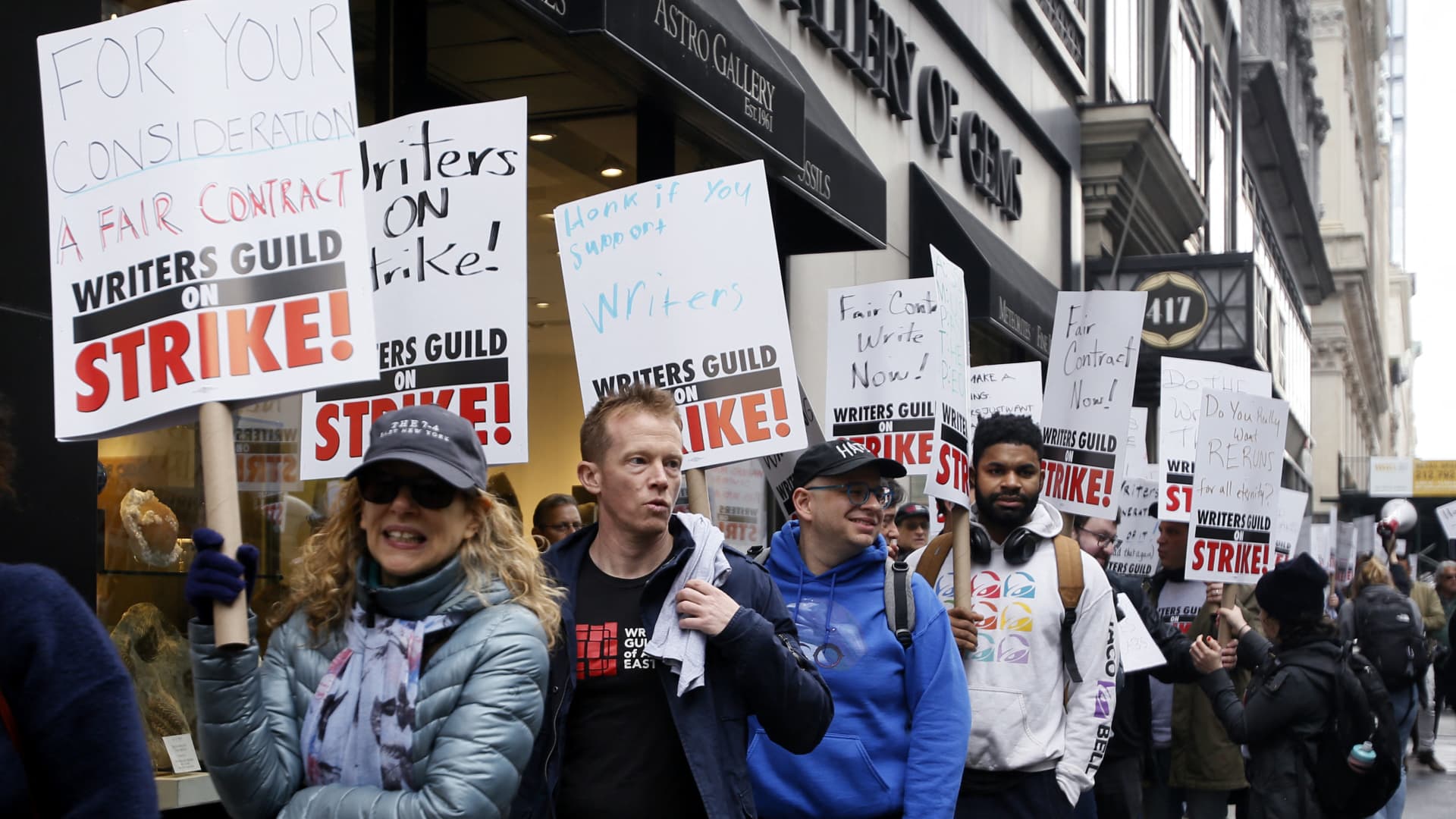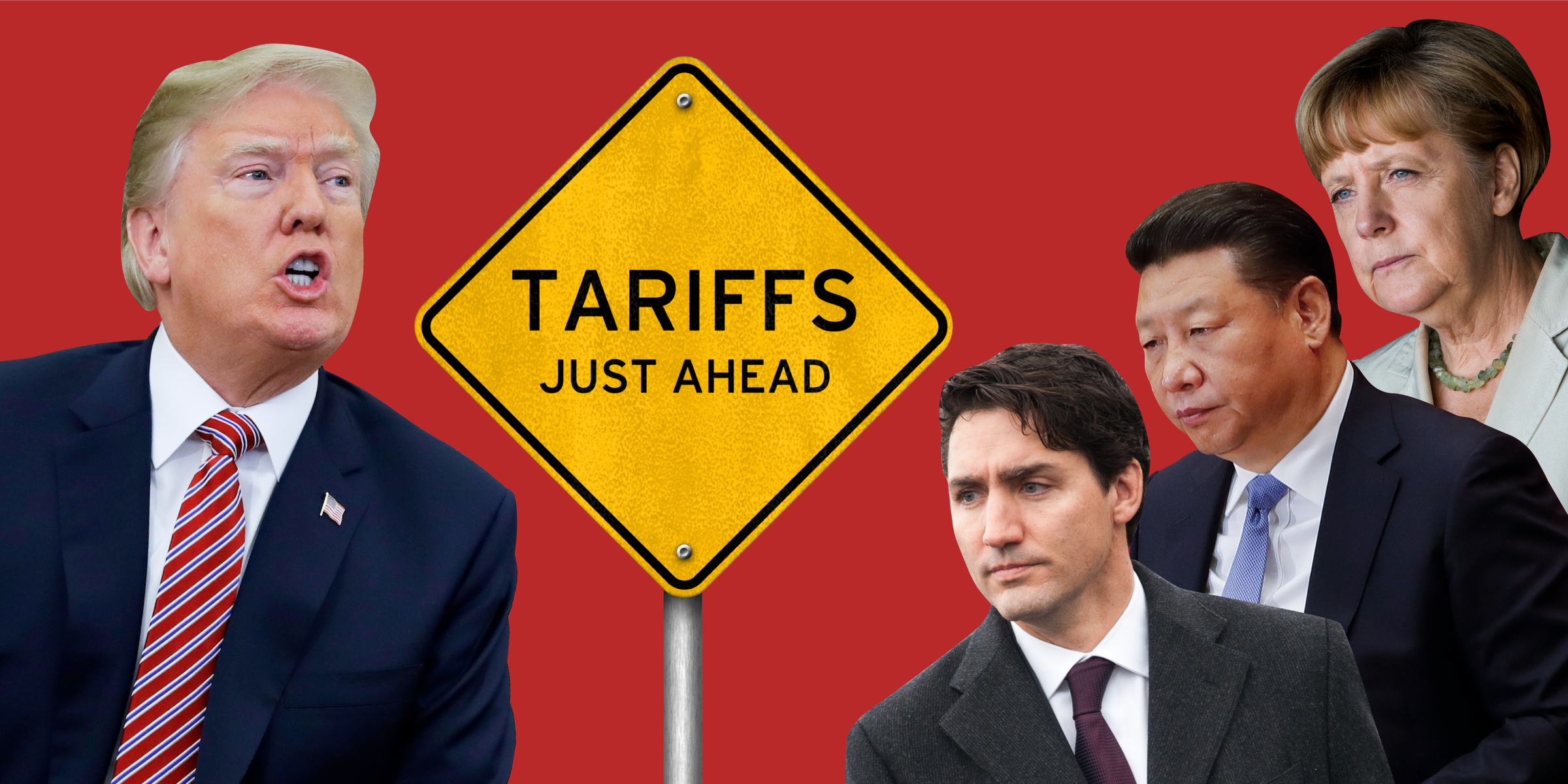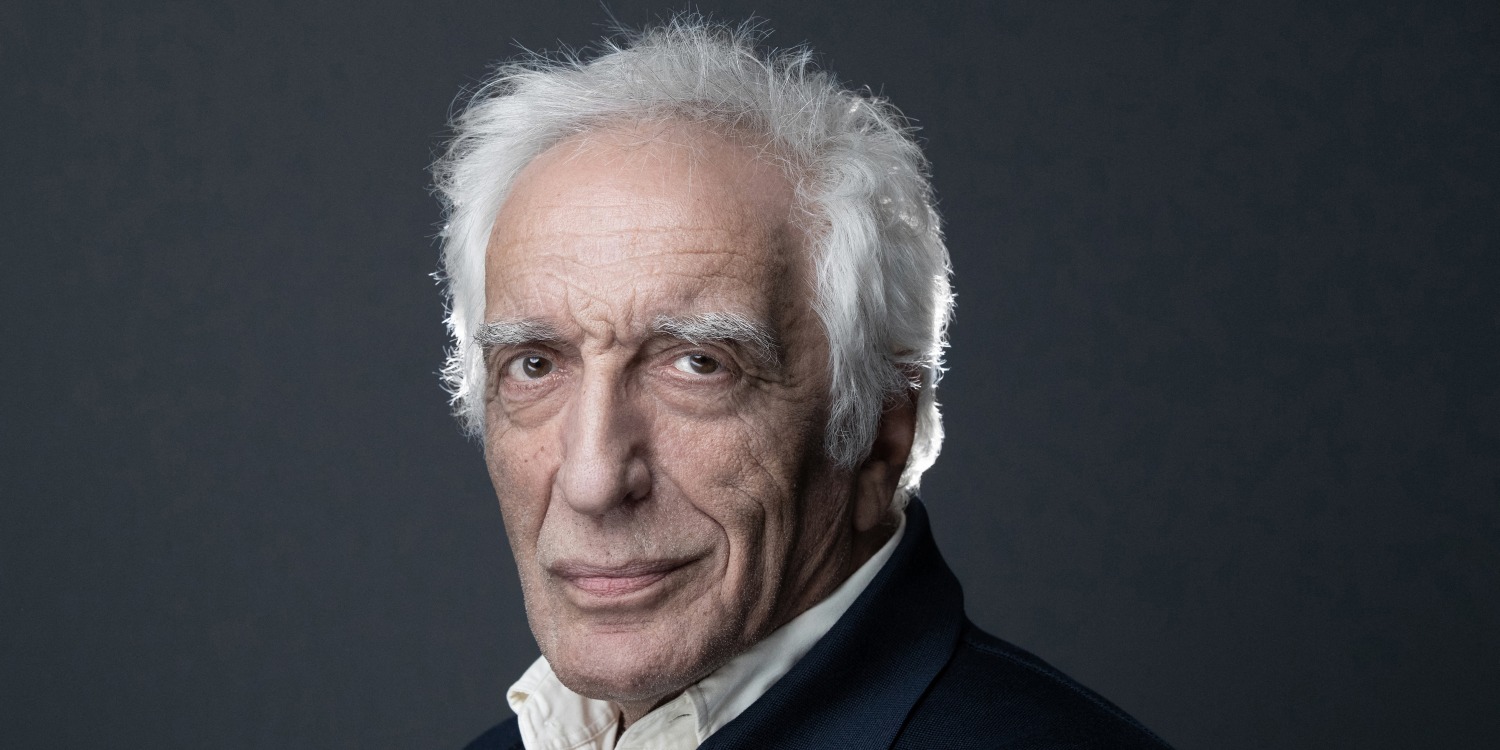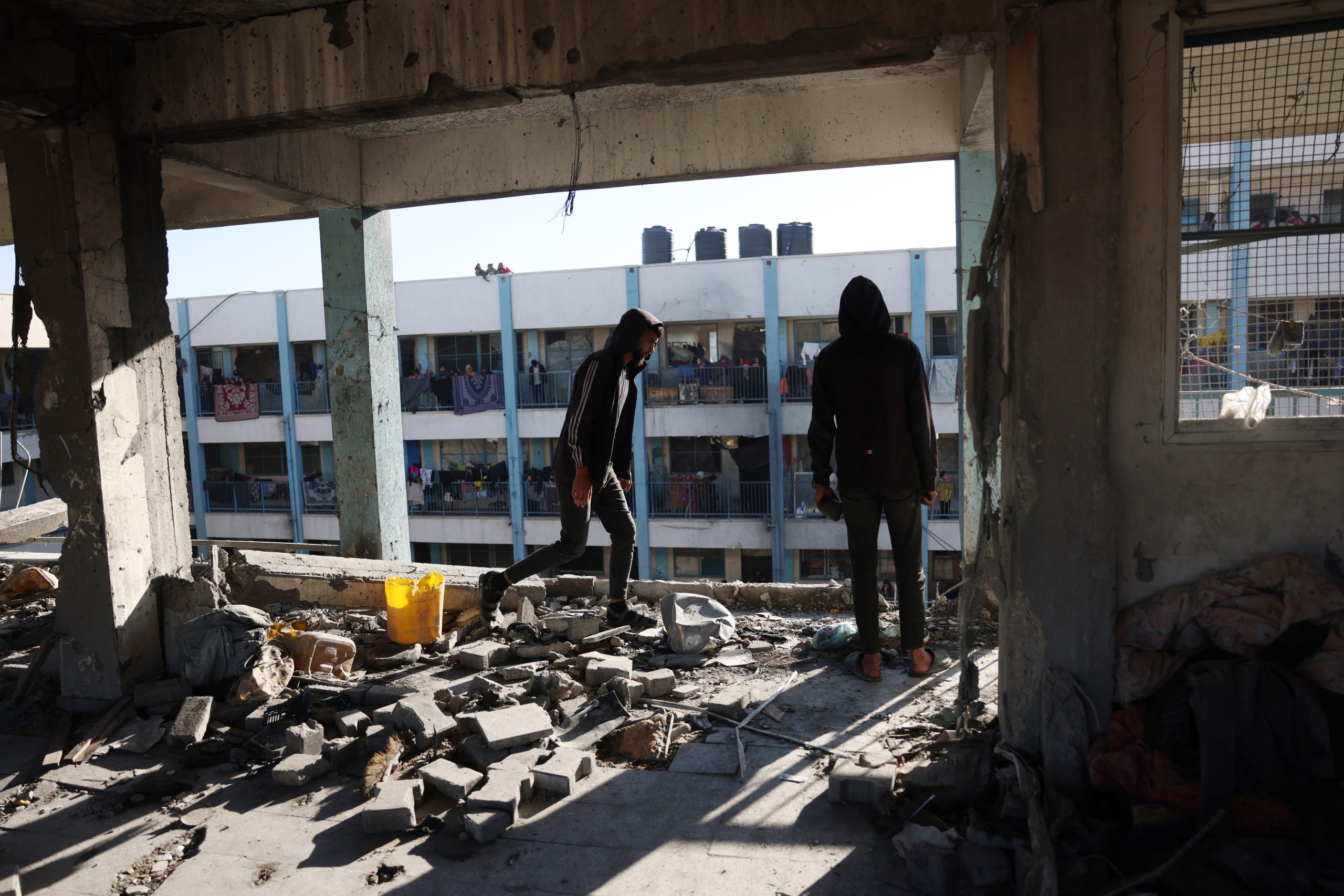Hollywood Production Halts As Actors And Writers Strike Together

Table of Contents
The Writers' Demands: Protecting Creativity in the Streaming Era
The Writers Guild of America's strike is fueled by several key issues that threaten the livelihood and creative freedom of screenwriters. The core concerns revolve around fair compensation, the looming threat of AI, and the need for minimum staffing levels on productions.
Fair Compensation: The Streaming Revolution's Disruptive Impact
The WGA's fight for better residuals is central to the Hollywood strike. Traditional television and film revenue models have been significantly disrupted by the rise of streaming services. This shift has resulted in drastically lower compensation for writers.
- Traditional models: Writers historically received residuals, or payments based on reruns and syndication, which provided ongoing income.
- Streaming models: Streaming services often offer flat fees, eliminating or severely reducing residuals. This means writers are paid only once, regardless of a show's popularity or longevity on the platform. The percentage of streaming revenue writers receive is often significantly lower than what they would receive under traditional contracts.
- Cost of Living: The high cost of living in Los Angeles, a major hub for entertainment, exacerbates the financial strain on writers struggling with decreased income.
AI Concerns: A Threat to Creativity and Job Security
The use of artificial intelligence in scriptwriting is a major point of contention. Writers fear that AI could be used to replace them entirely, diminishing job security and creative control.
- AI Script Generation: AI tools can generate scripts, potentially reducing the need for human writers.
- Devaluation of Creative Work: The use of AI devalues the expertise and creativity of professional writers.
- Contractual Safeguards: The WGA demands explicit contractual safeguards to prevent studios from using AI to replace human writers and to ensure fair compensation if AI is utilized in any part of the creative process.
Minimum Staffing Levels: Ensuring Quality and Well-being
The WGA seeks to ensure adequate staffing on productions to prevent overwork and maintain creative quality. Reduced staffing levels often lead to rushed scripts and compromised creative vision.
- Impact on Script Quality: Fewer writers mean less time for revisions, brainstorming, and overall script development, leading to inferior product.
- Writer Well-being: Insufficient staffing leads to burnout and compromises the mental and physical health of writers.
- Fair workload distribution: The WGA aims for fair workload distribution preventing exploitation and ensuring sustainable work environments.
SAG-AFTRA Joins the Fight: Actors Demand Fair Treatment and AI Protections
SAG-AFTRA, representing actors, has joined the WGA on the picket lines, sharing many of the same concerns regarding fair wages, the impact of AI, and working conditions.
Fair Wages and Residuals: The Streaming Pay Gap
Actors, like writers, are experiencing a pay disparity in the streaming era. Traditional broadcast and theatrical releases often offer higher compensation and residuals than streaming deals.
- Streaming Revenue Sharing: Actors often receive smaller payments for streaming projects compared to traditional releases.
- Self-Tape Auditions: The increasing reliance on self-tape auditions adds to actors' workload without commensurate compensation.
- Increased Work Burden: Actors often face increased workload with reduced pay, especially in streaming productions.
AI Concerns: Protecting Actors' Likenesses
SAG-AFTRA shares the WGA's concerns about AI's potential misuse. The union is particularly worried about the potential for actors' likenesses to be used without their consent or compensation.
- AI-Generated Performances: AI could be used to create deepfakes or digitally recreate actors' performances without their involvement or payment.
- Unauthorized Use of Likeness: Actors' images and voices could be used in perpetuity without their consent.
- Ethical and Legal Ramifications: The use of actors' likenesses without their permission raises serious ethical and legal concerns.
Working Conditions: Safety and Respect
Actors are also fighting for improvements in working conditions, including better safety measures and protection against harassment.
- On-set Safety: The industry needs stronger safety regulations and enforcement to protect actors from accidents and injuries.
- Harassment Prevention: Actors deserve a work environment free from harassment and discrimination.
- Fair Treatment: Improved working conditions are essential for fostering a healthy and productive work environment for actors.
The Impact of the Joint Strike on Hollywood
The joint strike by the WGA and SAG-AFTRA has brought Hollywood to a standstill, impacting numerous productions and related industries.
Production Delays: A Ripple Effect Across the Industry
The strike has caused widespread delays and cancellations of film and television productions.
- Major Productions Affected: Numerous high-profile movies and TV shows have been halted, impacting release schedules and the livelihoods of many individuals in the entertainment ecosystem.
- Economic Fallout: Local businesses that rely on the film industry, such as restaurants, hotels, and transportation services, are facing economic hardship.
- Financial Losses for Studios: Production delays are costing studios millions of dollars, resulting in considerable financial losses.
Potential Long-Term Consequences: Reshaping the Industry
The outcome of the Hollywood strike will have lasting consequences for the industry, potentially leading to significant changes in contracts and working conditions.
- Contractual Changes: The strike could lead to renegotiated contracts that better protect writers and actors from exploitation and the misuse of AI.
- Industry Restructuring: The strike may lead to fundamental changes in how the industry functions, potentially involving fairer revenue-sharing models.
- Impact on Creative Landscape: The long-term consequences may also affect the creative landscape, influencing the types of stories told and how they are produced.
Conclusion
The simultaneous strike by the WGA and SAG-AFTRA marks a critical moment for the entertainment industry. The demands for fair compensation, improved working conditions, and AI protections represent a fight for the future of creative work in Hollywood. The outcome of this historic Hollywood strike will significantly shape the landscape of film and television for years to come. Stay informed about the ongoing Hollywood strike and its potential ramifications for the future of entertainment. To learn more about the specifics of the Hollywood strike, continue researching this critical moment in entertainment history.

Featured Posts
-
 Nowhere To Hide Trumps Trade Policies And The Canadian Economy
Apr 23, 2025
Nowhere To Hide Trumps Trade Policies And The Canadian Economy
Apr 23, 2025 -
 Je T Aime Moi Non Plus Le Regard D Amandine Gerard Sur L Europe Et Ses Marches
Apr 23, 2025
Je T Aime Moi Non Plus Le Regard D Amandine Gerard Sur L Europe Et Ses Marches
Apr 23, 2025 -
 Tigers Furious Over Overturned Plate Call Hinch Demands Mlb Evidence
Apr 23, 2025
Tigers Furious Over Overturned Plate Call Hinch Demands Mlb Evidence
Apr 23, 2025 -
 Hudsons Bay Closures Impact On Brands And Inventory Relocation
Apr 23, 2025
Hudsons Bay Closures Impact On Brands And Inventory Relocation
Apr 23, 2025 -
 Disappearing Act How To Delete Your Digital Information
Apr 23, 2025
Disappearing Act How To Delete Your Digital Information
Apr 23, 2025
Latest Posts
-
 First Hand Accounts Nottingham Attack Survivors Tell Their Stories
May 10, 2025
First Hand Accounts Nottingham Attack Survivors Tell Their Stories
May 10, 2025 -
 Nottingham Survivors Recount Experiences After Devastating Attacks
May 10, 2025
Nottingham Survivors Recount Experiences After Devastating Attacks
May 10, 2025 -
 Nottingham Attack Inquiry Appointment Of Retired Judge Announced
May 10, 2025
Nottingham Attack Inquiry Appointment Of Retired Judge Announced
May 10, 2025 -
 Former Judge To Head Nottingham Attack Inquiry
May 10, 2025
Former Judge To Head Nottingham Attack Inquiry
May 10, 2025 -
 Judge Who Jailed Becker To Chair Nottingham Attacks Investigation
May 10, 2025
Judge Who Jailed Becker To Chair Nottingham Attacks Investigation
May 10, 2025
